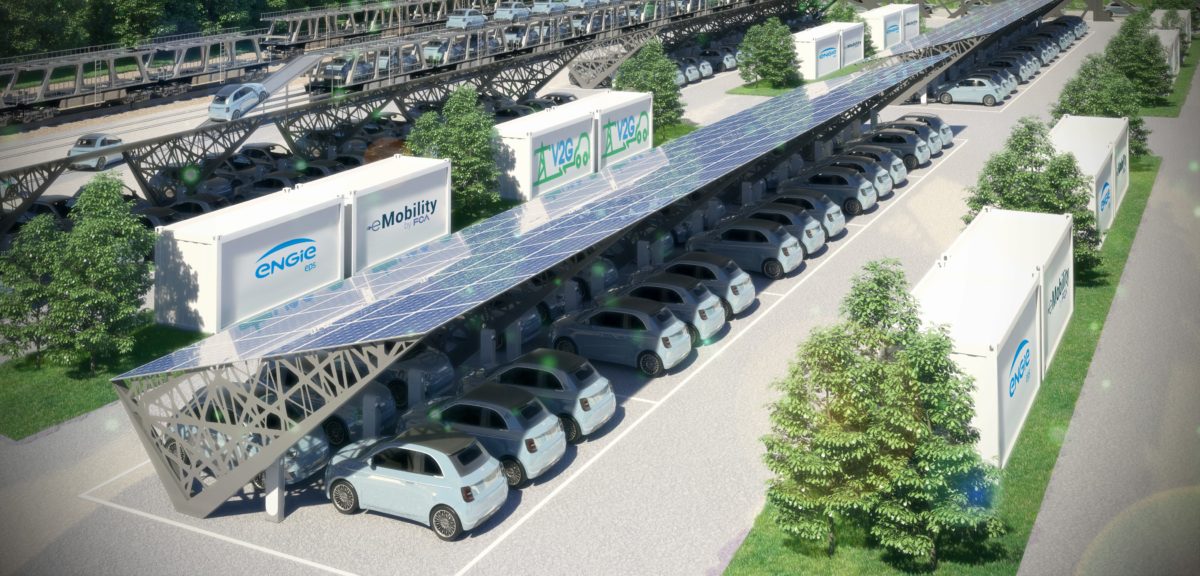Engie EPS, a unit of Engie specializing in energy storage solutions and microgrids, has been selected by Fiat Chrysler to build a vehicle-to-grid (V2G) pilot project at the Mirafiori manufacturing plant in Turin, in northern Italy's Piedmont region.
The infrastructure will recharge electric cars while using their batteries to provide grid-stabilization services. In the project’s initial phase, to be finalized in July, Engie EPS will install 32 V2G columns to connect 64 electric vehicles. Fiat Chrysler plan to expand the facility to interconnect up to 700 electric vehicles by the end of next year.
The project will also include 5 MW of installed solar power and is expected to reach a regulatory capacity of 25 MW. According to the carmaker, the facility will work as a virtual power plant and offer a wide range of services to Italian grid operator Terna, including ultrafast frequency regulation.
“On average, cars remain unused for 80% to 90% of the day. During this long period, if connected to the grid by vehicle-to-grid technology, customers can therefore receive money or free energy in exchange for the balancing service offered, without compromising their mobility needs in any way,” said Fiat Chrysler head of EMEA e-mobility, Roberto Di Stefano.
The Italian-American carmaker signed a partnership agreement last September with Terna to develop the V2G project. The agreement includes the creation of the E-mobility lab, an R&D facility that will conduct trials to assess the performance of electric cars and their ability to provide grid services.
In February, the Fiat Chrysler group also announced a project to build a 15 MW rooftop solar plant at the Mirafiori factory. The PV plant will be built in cooperation with Edison, the Italian energy unit of French state-run power producer EDF.
Both the solar plant and the V2G project are part of Fiat Chrysler’s €5 billion, 2019-21 industrial plan for Italy.
This content is protected by copyright and may not be reused. If you want to cooperate with us and would like to reuse some of our content, please contact: editors@pv-magazine.com.




By submitting this form you agree to pv magazine using your data for the purposes of publishing your comment.
Your personal data will only be disclosed or otherwise transmitted to third parties for the purposes of spam filtering or if this is necessary for technical maintenance of the website. Any other transfer to third parties will not take place unless this is justified on the basis of applicable data protection regulations or if pv magazine is legally obliged to do so.
You may revoke this consent at any time with effect for the future, in which case your personal data will be deleted immediately. Otherwise, your data will be deleted if pv magazine has processed your request or the purpose of data storage is fulfilled.
Further information on data privacy can be found in our Data Protection Policy.